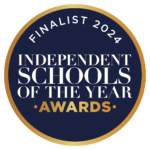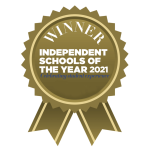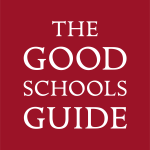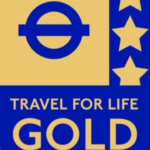We were delighted to recently catch up with David Grant (OE1975-80) who is an expert on Alexander the Great and has written two books on the subject, with more to come. This article covers David’s time at Emanuel, his subsequent working career and current experience working as a fulltime writer.
What are your memories of ‘1S’ back in 1975?
Most vividly, I remember the morning classroom roster of attendance and the name of every ‘1S’ pupil: Amin, Antiri, Bankole, Butcher, Blyth, Brunning, Changlee, Crighton, Dobson, Elston, Fenner, Golding, Groves, Hazel, Hope, James, Kawaja, Leyland, Macey, McDougall, Mills, Nugent, Perks, Roberto, Russell, Siddiqi, Spratley (me), Tossoun, Wardle, Watts and Williams. We were based in a portacabin-style hut by what were two grass tennis courts and the rugby pitch. Most of us were accessorised with the purple-blue squarish backpacks which were for sale through the school, adorned with the school badge. Of course, we had far too much homework back then, which entailed carrying heavy books back and forth each day. It was cunning of the faculty to foresee this and kit us out with these huge capacity rucksacks. I also recall I also useless at French in 1S; it was like a foreign language to me in my first year.
What were your main interests, or things you were involved in as a boy?
Astronomy. I remember standing at Platform 5 at Clapham Junction in 1977 pondering whether I would be able to afford a telescope by the time Halley’s Comet arrived in 1986. Luckily, one of the teachers (of Maths or Physics, I believe) shared the interest and soon I had a telescope. So, one evening in 1979 a few of us from the informally incorporated school ‘Astronomy Society’ spent the whole night in the basement under the gym waiting for the clouds to clear to see a meteor storm. It remained overcast, which surely led to me getting the grade C in Astronomy. I also played chess and joined the school team. After winning a match against a higher ranked player (from Kingston or KCS I think), the organiser of Emanuel chess asked me: ‘Spratley, have you been eating fish?’ I thought at first that my breath must smell of seafood which would explain why I beat the distracted opponent. When I finally figured out he meant fish is supposed to raise the IQ, I ate fish before every game.
You mentioned being impressed when you heard long-serving and charismatic English teacher JA Cuddon had a book in the school library (he published many!). Were you taught by Mr Cuddon?
Mr Cuddon was my English teacher during my early Emanuel years. He was a formidably nonchalant character who, I imagined, had walked out of a John Le Carre spy novel, or in his case, Graham Greene novels which Mr Cuddon loved. Everything about him shouted ‘academic genius’, as did the smoke from his cigarettes which wafted out of the ever-open classroom windows (‘Smokey Joe’ was his given nickname). And yes, I was in awe to learn he had a real book in the school library. One day he proposed something radical: for homework he set each of us the task of conjuring up cryptic crossword clues (this was at a time when we were still grasping the rudiments of plain English, which we were now being asked to flip on their head). I only remember one of my anagrams: Clue – ‘sounds like acrobats put it on their food in hot weather’. Answer – ‘somersault’. Wisely, Mr Cudden never set us this task again, and it was back to reading Brighton Rock (which, frankly, I found even more cryptic…)
Would we be right in thinking you went to America after Fifth Form?
I departed Emanuel at age 16, immediately after my last O-Level exam. I didn’t wait for results which, in those days, were posted on a board in the playground for all to dissect. We were the first ever Emanuel year (I think) to be given a psychometric evaluation. This was to guide the faculty into helping us decide on career paths or what to study on further education years. Three of us from 120 boys were called up to meet the headmaster, Mr Hendry, as our results were so confusing or uninterpretable. It was the first time I had ever met him. I was terrified and wondering if I had somehow caused a sacrilege in the multiple-choice psychometric questions or scrambled their analysis machine. Anyway, Mr Hendry didn’t beat around the bush and told me my answers were concerning. He enquired: ’are you happy?’ He next asked me what I really wanted to do with myself at that juncture on my life. I said: ‘leave the country as soon as possible.’ Mr Hendry replied: ‘well then, that might just be the best thing you can do.’ And I did. After working seven days a week as an apprentice printer/print manager, I saved sufficient funds by age 17 to hitchhike around the world. I first went to America and hitched from New Mexico to Alaska (where I was robbed and left stranded one night on the Trans-Alaskan Highway, but saw the Northern Lights, so was worth it!), then from southern India to the Himalayas (I got dysentery, but saw rare parts of Tibet: worth it!) and then around Greece (where I ran out of money when a ferry strike stranded me on Crete living off one stuffed pepper per day – but I saw the ruins at Knossos and the stunning Samaria Gorge; worth it!). I think Mr Hendry provided me with the best advice I ever had.
What was your educational path beyond Emanuel?
Nothing formal, except the cliché: life. But principally it was travel, alone. That was the real tonic for growing up and getting educated. In India, where books are laid out on station platforms and street pavements, I started picking up Shakespeare and ancient books on philosophy and actually read them, and then in Greece I started writing down my thoughts, after being tossed out of a tractor by a farmer who asked me whether I voted for or against Margaret Thatcher. I didn’t appreciate the depth of the political divide in Greece. I should have never put down the pen, as sadly I did, for too many years. But a part of my head remained in Greece, despite that roadside humiliation when hitchhiking towards Zakynthos.
What sort of jobs have you had? We read something about patents…
Printing was a quick-fix way to save money. I next worked overseas selling property (Spain, Canary Islands and Portugal) and became a financial adviser upon my return. In 1992 I signed up for the British Steel Challenge around the world yacht race, the first ever to sail the wrong way, East-West, against the prevailing winds and tides. It involved two years of training and nine months sailing (three stops). I sailed round Cape Horn naked (the Guinness Book of Records refused it as a ‘true first’ as I was wearing a bobble hat). It was difficult to stay still after that. So, I started my own investment banking company in Kobe then Tokyo in Japan (five years, and dodged the Kobe earthquake by four weeks) and then moved it to Gibraltar (four years), where, after watching my wine repeatedly get warm on a Spanish beach I filed a number of patents for non-diluting ice. As this business (Intelligent Ice) took off, I built with my own hands a log cabin in New Zealand which was tremendously theraputic. My mother had a deep vein thrombosis scare when flying out to visit me. So, with New Zealand government funding and university collaboration, I developed an inflight beverage system to counter DVT. The All Blacks rugby team have used it ever since. My father became ill in 2015, so I returned to the UK and had to relinquish the businesses. This is when I turned to writing so that I could be a home carer for my parents, as that’s where I remain today.
If you’re not a full-time writer how do you find the time to write/research such complex and academic works of non-fiction?
My way of winding down after a day of business was always to read ancient history, and back in 2010 I undertook a correspondent master’s degree on Alexander the Great with a thesis which eventually became my first book. This involved almost a decade of research giving me a substantial knowledge base. Since my return to the UK in 2015 I have been writing full time and this has enabled me to finally publish. I have accumulated quite a significant library on the period and since then I have penned a number of articles for archaeology magazines and websites since, as well as given lectures and podcasts. I also have an academia.edu page with a number of research articles. But writing non-fiction books doesn’t pay like a Harry Potter fantasy, so I’m considering a string of novels.
David at Delphi
Your 2017 book (all 850 pages of it!), In Search of the Lost Testament of Alexander the Great, looks like an incredible labour of love. The level of detail is astonishing. Could you tell us how you developed an interest in this area and the book’s origins?
My thought processes on Alexander developed over a decade or more: first as a hobby, and then they gradually coalesced into a coherent academic argument as I delved ever deeper into the sources. It became an obsession when I released all existing interpretations of his life and campaigns featured (in my opinion) fundamental untruths. I was encouraged by an academic in Greece, who read an early draft, to publish ‘before someone else figures out what you have and publishes their case’. That was quite a motivator. The book turned out to be a series of thematic chapters, some oblique to the central argument, but all related. I refused to follow academic norms and some of the book does require an advanced knowledge of Alexander historiography to full appreciated its departure from the ‘standard Alexander model.’ I was, I admit, writing it for myself and not for commercial considerations. It’s very ‘anti-syllabus’ and probably verging on heretical in some countries, including Greece!
You returned relatively quickly in 2019 with a second book, Unearthing the Family of Alexander the Great. How does this work compare?
After reading my first title, a team of Greek archaeologists asked me to collaborate with them on what became my 2019 book, because the investigation had many parallels with my 2017 work. The next two years turned out to be something of a murder-mystery hunt steeped in the unravelling of previous over-nationalistic Greek archaeology, much of which fell apart with the latest evidence found by the team. I wrote this in a far more accessible style as a general reader for a non-academic audience, but it has nevertheless raised a few ministerial eyebrows in Greece. It’s very much focused on the female side of Alexander’s royal family and female empowerment in the ancient world of Macedon.
Do you have Indiana Jones DNA in your blood? Did writing these books involve much travelling and digging or was it more document research?
Well, Indiana Jones was quite handsome and a charmer, so I doubt I have his DNA. Neither do I have a bull whip. But I have always been an adventurer and risk taker. And yes, I have climbed down a few tombs where entry was forbidden. In some circumstances there is simply no substitute for being on site and sucking up the atmosphere of an ancient burial site or monument and I don’t think any book can convey the wonders of Olympia, Delphi and the Vergina tombs. But, as most of the past has disappeared into the dirt or crumbled with papyrus manuscripts in damp monastery scriptoriums, I, like everyone, had to rely upon the surviving library sources, which means document research. I own a sixteenth-century first edition of an Alexander manuscript and an ancient Greek coin minted during his reign. These keep me grounded in the past when I’m paging through modern imprints. There is perhaps one parallel with Indiana Jones, who was a lecturing archaeologist. I once gave a lecture to the senior years at Royal High School Bath and asked the faculty how I should tailor my presentation to this audience. The answer was surprising: ‘these are 15- and 16-year-old girls, so make sure there is plenty of gore, horror, shocking facts and anything gruesome, and you’ll do just fine,’ said one of their teachers. So I did. Fortunately, the reign of Alexander made that relatively easy.
What’s the fascination with Alexander the Great? Is there another book in the pipeline?
I think the perennial fascination is that everyone can relate on some level to Alexander, who almost certainly means something different and personal to each reader. What he ‘stands for’ (or stood for through the ages) has become more important than ‘who he was’. Even modern Greece is seduced and holds him as a national hero, which is paradoxical when Alexander and his father ended Greek democracy for good, crushed them in battle, and garrisoned the Greek cities. What’s most endearing about studying Alexander is that you get inextricably drawn into the Persian Empire, India, Rome, Scythia, Egypt, the Balkans, the Celtic borderlands, and if you read the Alexander ‘romance’ genres, even into England. His story is as exotic as the tales of King Arthur but bound in historical truth. Then again, I’m just commencing a book titled Historians at War; the Ancient Sources for Alexander the Great and why they can’t be trusted. So much then for ancient historical truth…
If you could give any advice to your 15 or 16-year-old self what would it be?
Bearing in mind that would have been 1980, I advise myself to use all my pocket money and my weekly pay (I did food deliveries at the weekend to earn money) to buy shares in Apple. I’d next advise me to never take advice from your own alter-self in middle age! Naivety, innocence and making mistakes are character building. As a teenager your thoughts are less cluttered with baggage and you’re unlikely to know fear or failure, so your mind probably generates some purer wisdoms than in later life. That’s certainly true for me. I think I would be more interested in sitting down with my 16- year-old self and taking some youthful advice.
David in the National Scientific Laboratory 'Demokritos' Athens with the team













